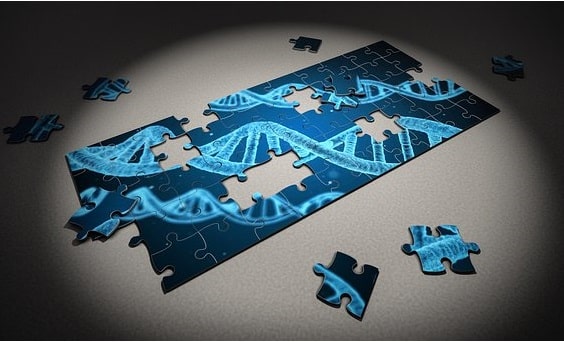The origin and development of eating disorders is a complex topic. In the past, misunderstandings about these disorders led many people to create false conclusions. Thankfully, newer research on how these ailments develop in an individual are slowly dispersing these misperceptions. These newer studies have even started to explore the connection between eating disorders like anorexia, depression and a person’s genetics.
The traditional stereotype for someone with an eating disorder was a younger, wealthier, Caucasian woman. However, this stereotype is not true. In fact, people from a wide-variety of backgrounds can, and do, suffer from eating disorders. Pushing beyond societal identifiers like race and income levels, researchers are now beginning to study the human genome in order to discover additional eating disorders indicators.
For conditions like anorexia nervosa, bulimia or binge eating; healthcare professionals still are not sure as to why some people develop eating disorders. However, there are well-documented risk factors that can increase an individual’s chances for developing an eating disorders. Studies have shown a strong correlation between the existence of depression and occurrence of an eating disorder. These disorders also commonly co-occur with anxiety disorders.
Major depressive disorder or clinical depression is one of the more common mood disorders. Similar to eating disorders, the symptoms of depression can affect how a person feels and thinks. Even activities such as sleeping, eating, or working are impacted. Clinical depression is more than feeling sad for a day. It is much longer and more severe. For example, for a behavioral health professional to make a diagnosis, the symptoms for major depressive disorder usually must be present for at least two weeks.
In one study, researchers sampled 2,400 individuals who were hospitalized for an eating disorder. Out of this sample group, researchers discovered that 92% of those in this group struggled with a depressive disorder. Discovering connections between these conditions has encouraged researchers to look at more recent large-scale genomic studies. Using genetics to explore the complexity of eating disorders is starting to produce clues as to the disease’s origins and why it is so persistence.
One of the first studies that was able to document a strong correlation between eating disorders and genetics was in 2017. The research, published in the American Journal of Psychiatry, was able to identify a significant genetic marker for anorexia nervosa. The implication of this research suggests that health conditions like anorexia nervosa may both exist as a psychiatric and a metabolic disorder.
Anorexia nervosa has the highest mortality rate of any eating disorder. Commonly referred to as anorexia, the disorder is characterized by extreme caloric restriction resulting in weight loss, an intense fear of gaining weight, and a distorted body image. Individuals with this condition sometimes go undiagnosed, but researchers estimate that roughly 2 percent of women and 0.3 percent of men suffer from this disease.
Researchers have found, by studying the genetic makeup of identical twins, that anorexia is 50 to 60 percent inheritable. Earlier genetic research has linked these same genomic regions to autoimmune disorders, including type 1 diabetes and rheumatoid arthritis.
With the success of the Human Genome Project, which was completed in 2003; researchers can now study the impact of genetic code on a person’s health. The successful completion of the project gave scientist and physicians the ability, for the first time, to read the complete genetic code for building a human being. Currently, this DNA blueprint is used to research many other diseases and conditions. Hopefully, this new research will provide a better understanding as to why and how eating disorders develop, as well as offer additional treatment options.
Experienced Healthcare professionals can help individuals identify eating disorders, as well as provide safe and effective treatment options. For additional information or questions about eating disorder treatment options, please contact the staff at Toledo Center (RCC). Their Eating Disorders Programs provide a full range of treatment options for both adolescents and adults.
Toledo Center’s primary goal is to provide high quality, cost-effective, specialized care for patients with eating disorders in a state-of-the-art treatment environment. Our levels of care deemed most cost-effective for the majority of these patients is Partial Hospitalization for adults and Residential Treatment for adolescents. We also provide outpatient services for this patient population in order to facilitate transition to and from the above higher levels of care that are usually required for effective treatment of this population.
The EAT-26 (Eating Attitudes Test) assessment provides anonymous and quick feedback for a variety of eating-related health conditions.
Follow on Twitter: @Toledo_Center
Genetics, Depression, Eating Disorders, Anorexia

